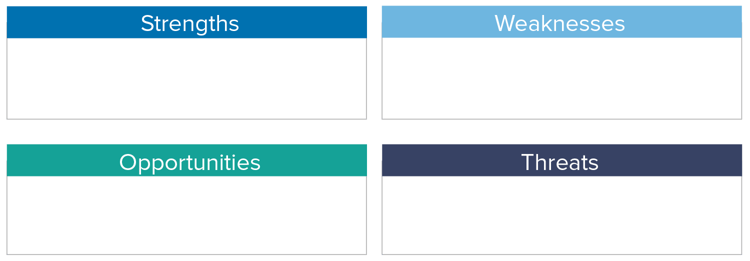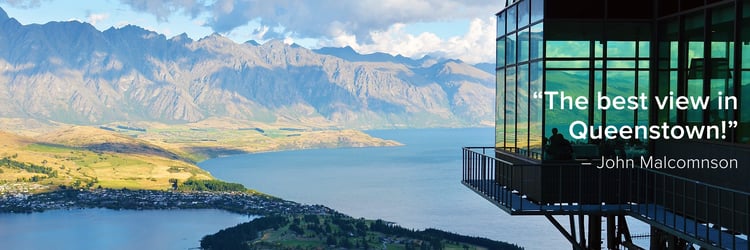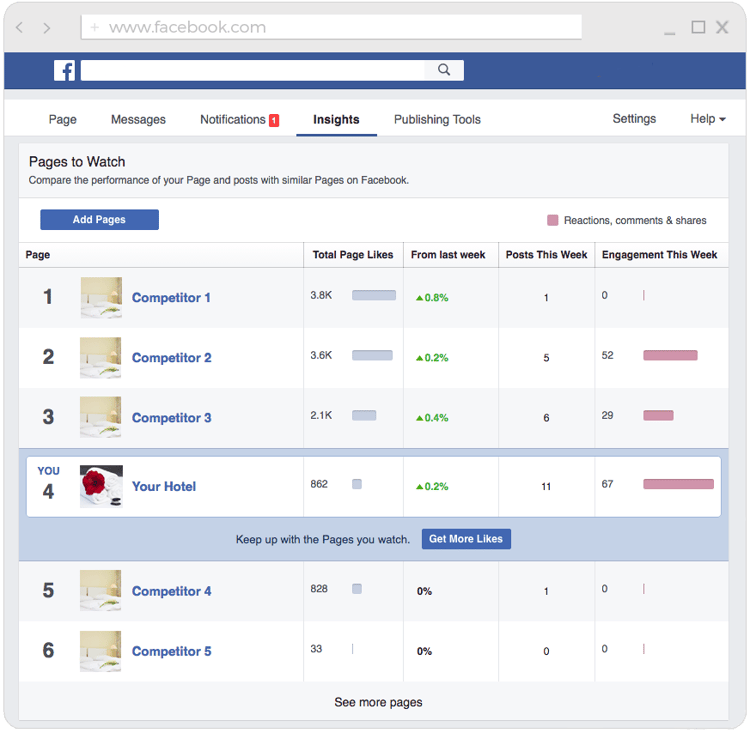.png?width=375&name=Three%20ways%20to%20use%20your%20competitive%20intelligence%20(and%20make%20the%20most%20of%20your%20budget).png) Online travel agents, social media and review sites are fantastic places for prospective travellers to scout for information that will help them choose the right hotels, activities, and restaurants for them, but the online world is also a great place for hoteliers and other travel professionals to gather intelligence on their competition.
Online travel agents, social media and review sites are fantastic places for prospective travellers to scout for information that will help them choose the right hotels, activities, and restaurants for them, but the online world is also a great place for hoteliers and other travel professionals to gather intelligence on their competition.
The amount of information online means that this intelligence gathering can be overwhelming – TripAdvisor alone receives 16 new reviews every minute. However, with the right technology and tools in place, making sense of the information available to you, turning your “big data” into “smart data” your competitive intelligence can become uniquely useful in informing your operations, marketing and growth strategies. Here are three ways for hoteliers to use competitive intelligence:
1. Perform a SWOT analysis
The SWOT analysis is a fantastic way to organise your thoughts and condense your insights – it works for almost any business, and the hospitality industry is no exception.
“SWOT” stands for Strengths, Weaknesses, Opportunities and Threats. Analysing each of these areas for your competitors will help you to see what you need to be doing to keep up, and where you may have the chance to overtake your competition.
By scrutinising reviews of your competitors on online travel agents and review sites, their interactions with guests on social media, you should be able to analyse each competitor’s:
- Strengths – where does hotel excel, what are they particularly good at? Strengths might be real or perceived.
- Weaknesses – where does this hotel fall short, what should they be fixing? Weaknesses may also be real or perceived.
- Opportunities – how could your hotel overtake this hotel to gain more customers, acquire a higher ranking or a better reputation?
- Threats – how could this hotel harm your business?

Once you have analysed each of your competitors individually, a good practice is to draw up a summary of your findings in a competitor grid that encapsulates your competitions’ key strengths, key weaknesses, and key differentiating factors.
You can then use this information to derive themes, and spot areas where you can fill a gap and differentiate yourself from your competition, and where your competition has the upper hand.
2. Better allocate effort and funds
As you gather your competitive intelligence, read through reviews of competing hotels and take note of what your competitors’ guests are focussing on, the good, the bad and the ugly. By keeping an eye on your competitors’ guest feedback, you don’t have to make mistakes yourself to learn from them – just watch what your competitors get wrong and make sure you don’t copy them.
Similarly, you don’t have to experiment with every aspect of your guest experience to find out what works, let your competitors do the hard work for you. As you work your way through their reviews and online guest feedback, you will notice repeated themes in positive reviews. Use what’s working for your competitors and make it work for you.
You don’t have to experiment with every aspect of your guest experience to find out what works, let your competitors do the hard work for you
If people are consistently complimenting your competitors on their luxurious bed linen, then you know that that is what they care about. Instead of spending your extra budget this year on fancy bathroom amenities, put it towards better linen. And silently thank your competitors for the market research.
3. Optimise your online presence
This is the simplest and most easily actionable thing you can do with the information you have collected from your online spying. Take note of what your competitors’ guests are enjoying, and if you can offer the same experience (or a better one) then this is what you need to be marketing to your prospective guests and highlighting on your website, social media and OTA listings.
When you notice your competitors’ guests consistently mentioning the wonderful experiences they have had at tourist attractions in the area, for instance, you know that publicising your proximity to these attractions will make visitors more likely to consider your hotel. In this example you could also use this intelligence to inform your operations; you could consider offering free transport to the most popular attractions, and, of course, publicising this offer as well.
Keeping an eye on what guests are saying about your competition can also help you discover what makes you unique, and therefore what you should be highlighting on your website, social media, OTA listings and other promotional material.

For example, if travellers never mention the view from your competitor’s hotel, but consistently rave about the view from yours, you can capitalise on this. Unless the competition is planning on moving their hotel or building some more storeys, they can’t compete.
When you watch your competition’s social media accounts, you can also use them to test what kind of content works well. Facebook’s “pages to watch” function makes it almost too easy to see what kinds of content people in your target market are engaging with and what they aren’t.

While other hoteliers are lamenting the radical transparency that the “review revolution” has forced their hotels to display, you can make the most of the cornucopia of information on your competitors that the internet provides. Keeping an eye on what your competitors are up to and how their target market and online audience is responding can save you a small fortune in market research and trial and error.




